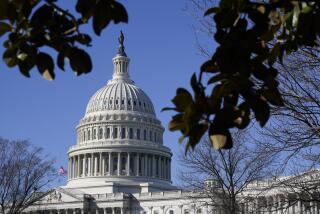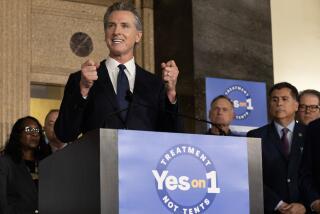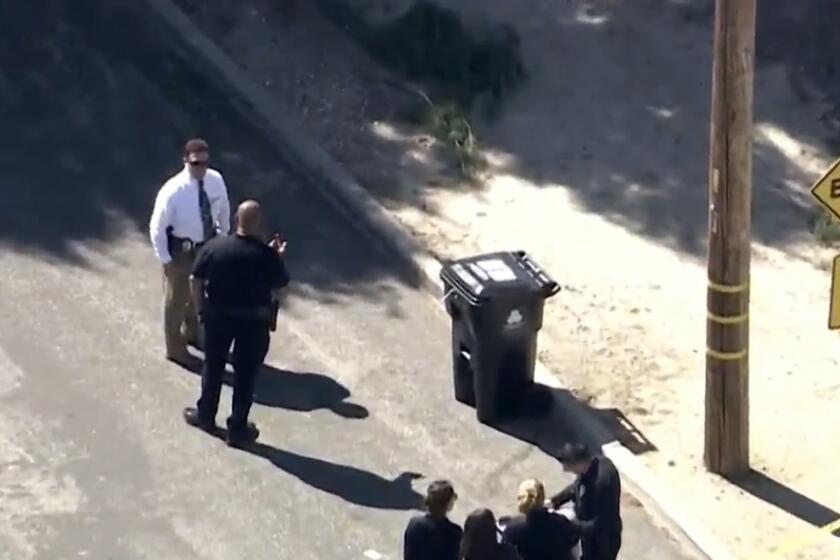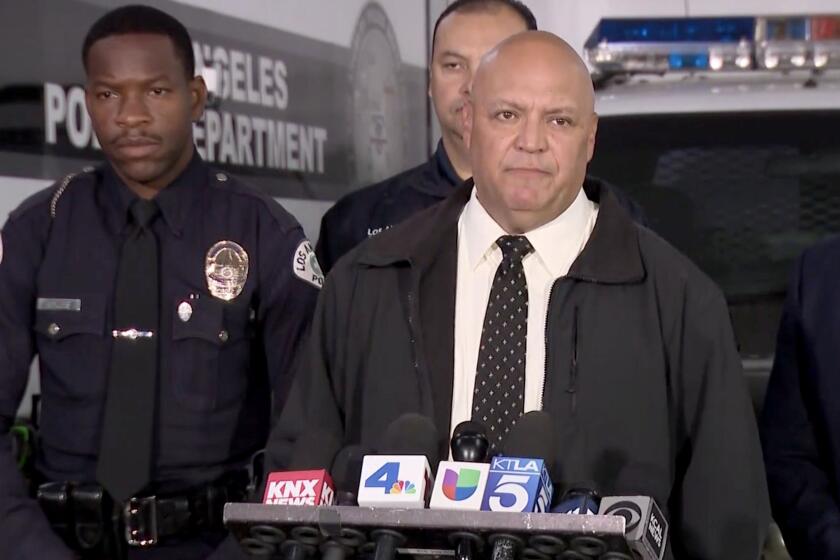California lawmaker seeks tax on independent political spending
A California lawmaker wants to stanch the outside money that freely flows in state elections by imposing a tax on such spending.
Assemblyman Marc Levine (D-San Rafael) has introduced a bill that would impose a tax on independent expenditures--campaign spending done by independent groups (sometimes called “super PACs”), instead of by candidates or party committees.
“When independent expenditure spending goes up, voter participation has decreased,” Levine said in an interview. “This bill will help increase civic engagement and bring back voters that the super PACs turn off.”
Outside groups are not subject to contribution limits that govern candidate-controlled committees. Such independent spending has surged in California since 2000, when a ballot initiative limited the amount that could be given directly to candidates.
Levine said outside groups don’t have the accountability that candidates do in campaign messaging. The rash of political advertising, especially negative ads, can depress turnout, he said.
So Levine wants to impose a tax--the exact amount is to be determined, but he threw out a 10% surcharge as an example--on independent political spending. The money collected would go toward increasing civic engagement and promoting transparency in elections.
The bill, AB 1494, faces certain push back from myriad interests--from business groups to labor unions to wealthy individuals--that have enthusiastically embraced independent political spending.
And many lawmakers have benefited from the outside aid, including Levine, who was boosted by more than $330,000 in outside spending in his first Assembly race in 2012, in which he knocked off the incumbent, Democratic Assemblyman Michael Allen. Forces backing Allen spent even more in that race--nearly $1 million in outside spending.
Even if it were to become law, it could face another hurdle in the judiciary.
Rick Hasen, a professor of election law at UC Irvine, said the proposal could be challenged as a violation of the 1st Amendment.
“You can’t design a tax with the purpose of trying to suppress speech. ...The clear import of something like this would be to discourage people from making independent expenditures,” Hasen said.
The current Supreme Court “is very protective of unlimited spending in elections, so long as it’s independent,” Hasen added.
Levine said he looked forward to having that debate.
“It’s very good for us to have that dialog,” he said. Should the bill be successful, “I’ll welcome the opportunity to have [it] defended all the way to the Supreme Court.”
Follow @melmason for more on California government and politics.
More to Read
Start your day right
Sign up for Essential California for news, features and recommendations from the L.A. Times and beyond in your inbox six days a week.
You may occasionally receive promotional content from the Los Angeles Times.







